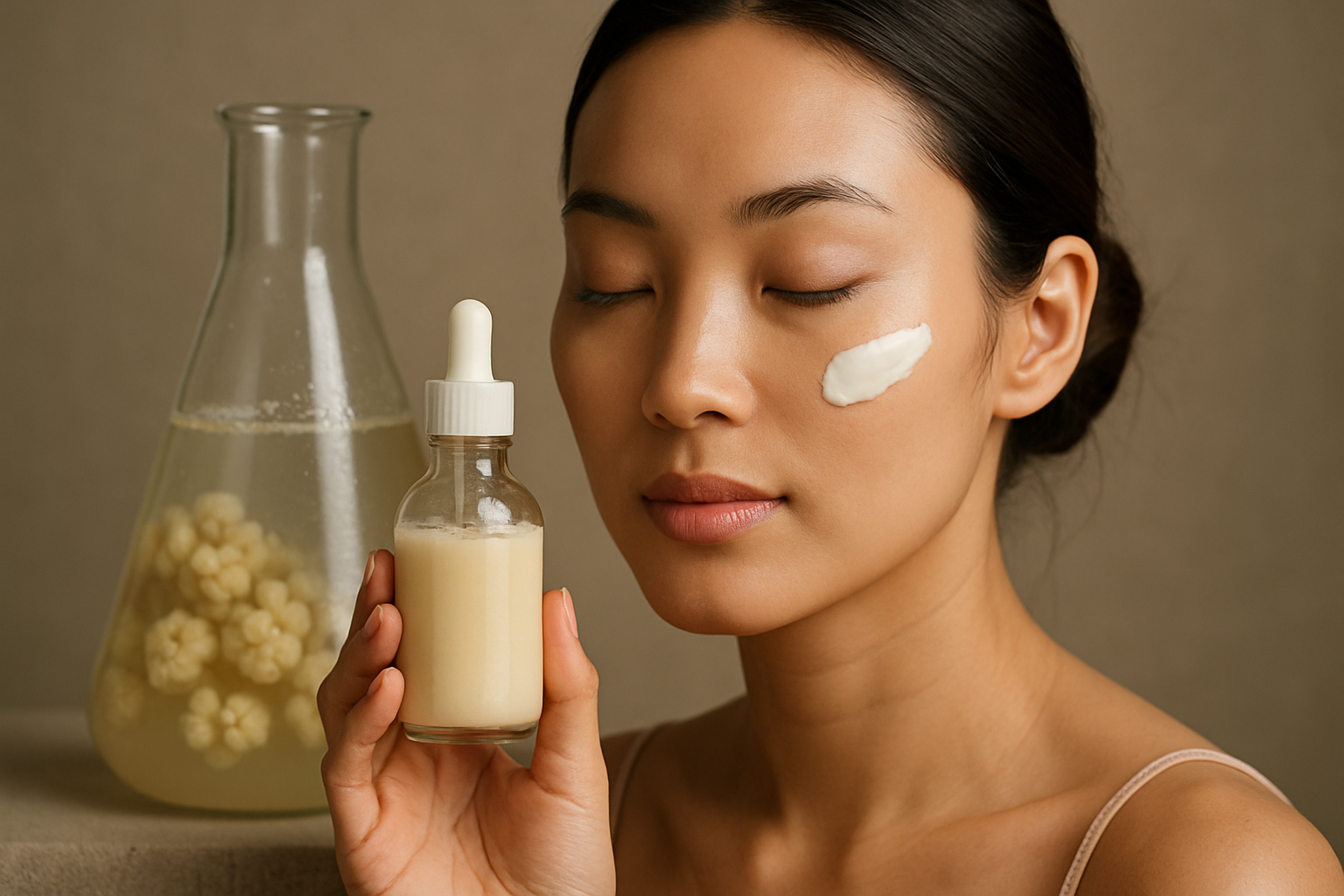Fermented Beauty: The Next Frontier in Skincare
In the ever-evolving world of beauty and skincare, a new trend is bubbling up from an unexpected source: fermentation. This ancient process, long revered in culinary traditions, is now making waves in the beauty industry. Fermented skincare products are touted for their enhanced potency, improved absorption, and ability to nourish the skin's microbiome. As consumers increasingly seek natural, effective solutions, fermented beauty is poised to revolutionize our skincare routines. But what exactly is fermented skincare, and why is it gaining such traction? Let's dive into the fascinating world of beauty's newest buzzword and explore how this innovative approach might just be the key to unlocking your skin's potential.

The fermentation process can increase the concentration of vitamins, antioxidants, and amino acids in skincare ingredients. It also produces beneficial enzymes and organic acids that can help improve skin texture and tone. Furthermore, fermentation can break down molecules into smaller sizes, potentially making them easier for the skin to absorb and utilize.
One of the key benefits of fermented skincare ingredients is their ability to support the skin’s natural microbiome. The good bacteria produced during fermentation can help balance the skin’s ecosystem, potentially leading to improved barrier function and overall skin health.
Historical Context and Cultural Significance
While fermented beauty may seem like a new trend, the use of fermented ingredients in skincare has deep roots in many cultures. In Korea, for instance, fermented ingredients have been used in beauty rituals for centuries. The tradition of using fermented rice water for skin and hair care dates back to the Joseon Dynasty.
In Japan, the benefits of fermented ingredients have long been recognized, with sake brewers known for their youthful-looking hands – a result of constant contact with the fermented rice mash. This observation led to the development of skincare products containing fermented sake or rice extracts.
In India, Ayurvedic medicine has utilized fermented herbs and plants for thousands of years, recognizing their enhanced potency and healing properties. The process of fermentation in Ayurveda, known as “Sandhana Kalpana,” is used to create various medicinal and cosmetic preparations.
Current Industry Trends and Market Impact
The global fermented ingredients market is experiencing significant growth, with the skincare sector playing a substantial role. According to recent market research, the fermented ingredients market is expected to reach $40 billion by 2025, with a compound annual growth rate of 8.5%.
Several factors are driving this trend. Consumers are increasingly seeking natural, sustainable skincare solutions, and fermented ingredients align well with this demand. The rise of the “skinimalism” trend, which emphasizes minimalist routines with highly effective products, has also contributed to the popularity of fermented skincare.
Major beauty brands are taking notice and incorporating fermented ingredients into their product lines. From luxury skincare to mass-market brands, fermented beauty is becoming increasingly mainstream. Some companies are even developing proprietary fermentation processes to create unique, high-performance skincare formulations.
Benefits and Efficacy of Fermented Skincare
Fermented skincare products boast a range of potential benefits, supported by both traditional wisdom and emerging scientific research. Some of the key advantages include:
-
Enhanced nutrient density: Fermentation can increase the concentration of beneficial compounds like vitamins, antioxidants, and amino acids.
-
Improved absorption: The breakdown of molecules during fermentation may lead to better skin penetration and utilization of active ingredients.
-
Microbiome support: Fermented ingredients can help nourish and balance the skin’s beneficial bacteria, potentially improving overall skin health.
-
Gentle exfoliation: Organic acids produced during fermentation can provide mild exfoliation, promoting smoother, brighter skin.
-
Anti-aging properties: Some fermented ingredients have shown potential in reducing the appearance of fine lines and wrinkles.
-
Soothing and calming effects: Certain fermented ingredients may help reduce inflammation and soothe sensitive skin.
While more research is needed to fully understand the efficacy of fermented skincare, early studies and anecdotal evidence are promising. A 2012 study published in the Journal of Medicinal Food found that fermented red ginseng had greater anti-wrinkle effects compared to non-fermented ginseng. Another study in the Journal of Cosmetic Dermatology in 2018 showed that a fermented sea kelp extract improved skin hydration and elasticity.
Incorporating Fermented Beauty into Your Routine
For those interested in exploring fermented skincare, there are various ways to incorporate these products into your existing routine. Some popular fermented ingredients to look out for include:
-
Fermented tea extracts (e.g., kombucha)
-
Fermented rice water or sake
-
Fermented soy
-
Fermented herbs like ginseng or mugwort
-
Fermented fruit extracts
When introducing fermented skincare products, it’s best to start slowly and patch test new products, especially if you have sensitive skin. Begin by incorporating one fermented product at a time, such as a toner or serum, and gradually build up your routine.
It’s important to note that while fermented skincare can offer many benefits, it’s not a one-size-fits-all solution. As with any skincare product, individual results may vary, and it’s always best to consult with a dermatologist if you have specific skin concerns or conditions.
The Future of Fermented Beauty
As research in this field continues to grow, we can expect to see further innovations in fermented skincare. Some areas of development include:
-
Customized fermentation processes tailored to specific skin types or concerns
-
Combination of fermented ingredients with other advanced skincare technologies
-
Expansion into other beauty categories, such as haircare and body care
-
Increased focus on sustainability, with brands exploring eco-friendly fermentation methods
The rise of fermented beauty represents a fascinating intersection of ancient wisdom and modern science. As consumers become more educated about skincare ingredients and seek out effective, natural solutions, fermented beauty is likely to play an increasingly significant role in the industry. Whether you’re a skincare enthusiast or simply curious about the latest trends, fermented beauty offers an intriguing avenue for exploration in your quest for healthy, radiant skin.






